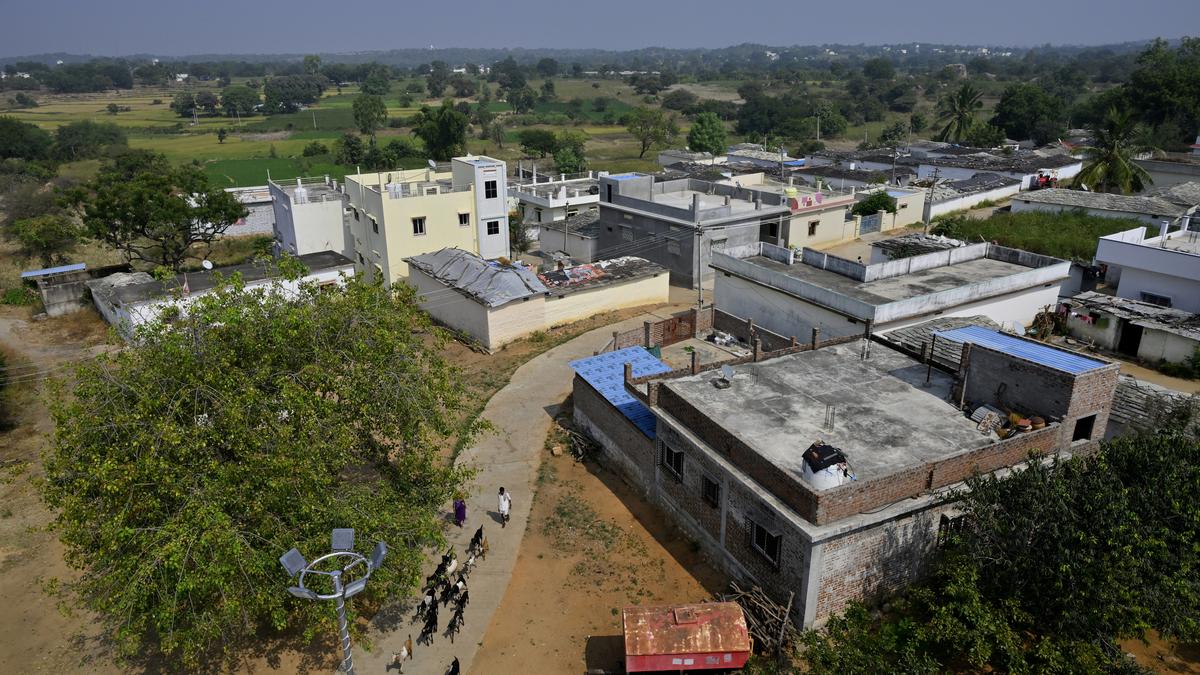
Lagacharla row in Telangana: Pharma dreams face farmers’ defiance Premium
The Hindu
Lagcherla village under lockdown after attack on officials during contentious land acquisition hearing in Telangana.
The approach to Lagcherla village, nearly 130 km from Hyderabad, is under lockdown-like security. Multiple police checkpoints have been set up along the Tunkumetla-Kosgi road, where vehicles are stopped, and identification is meticulously scrutinised before allowing further access. The intensified measures follow the November 12 attack on Vikarabad District Collector Prateek Jain, Kodangal Area Development Authority (KADA) Special Officer K. Venkat Reddy, and other government officials by locals during a contentious public hearing.
The hearing, held to discuss land acquisition for a proposed ‘Pharma Village’ project by the Telangana government, turned chaotic when residents, mainly from Roti Banda thanda and Pulicheru thanda — now part of Roti Banda thanda gram panchayat — allegedly attacked the officials. The incident, the first of its kind on this scale in Telangana, has sparked outrage among government officials and ministers alike. Collector Jain downplayed the attack as a ‘sort of confrontation’, amid demands from officials for strict action against the perpetrators.
Lagcherla, a sleepy village 17 km from Tunkumetla in Kodangal Assembly constituency represented by Chief Minister A. Revanth Reddy, now resembles a war zone. Police personnel and barricades dominate the landscape, and tensions, though under control, linger. This village is home to around 3,000 people of various communities, including upper castes.
Official sources say the acquisition plan involves 1,358 acres of land, including 547 acres of assigned land, 90 acres of government land, and 721 acres of private holdings. Around 800 farmers, mainly from poor and tribal communities, stand to lose their land and are seeking compensation of ₹30 lakh per acre, citing loss of livelihood and generational land. The area is considered one of the more backward regions of the State, plagued by arid climatic conditions.
Government officials, for their part, reportedly proposed a Rehabilitation and Resettlement (R&R) package that includes financial aid of ₹10 lakh per acre, a house under the Indiramma housing scheme, and a 125-square-yard plot for every acre of land surrendered. However, farmers argue that the compensation undervalues their land and does not account for the socio-economic impact of displacement. But officials maintain the project is crucial for industrial development and employment generation, with promises of further negotiations to address farmers’grievances. These talks, however, ended in chaos, with farmers attacking officials during a public hearing.
For over eight months, landowners from Lagcherla, Roti Banda thanda, and Pulicheru thanda had been opposing the project. Their resistance peaked during the planned boycott of the November 12 public hearing, marked by a ‘Vanta-Vaarpu’ protest — a symbolic form of agitation reminiscent of the Telangana statehood movement.
“When the Collector arrived without police protection, protesters began chasing and attacking him with sticks. People of our village were not involved; it was mainly those from nearby thandas and outsiders,” an elderly resident says.











